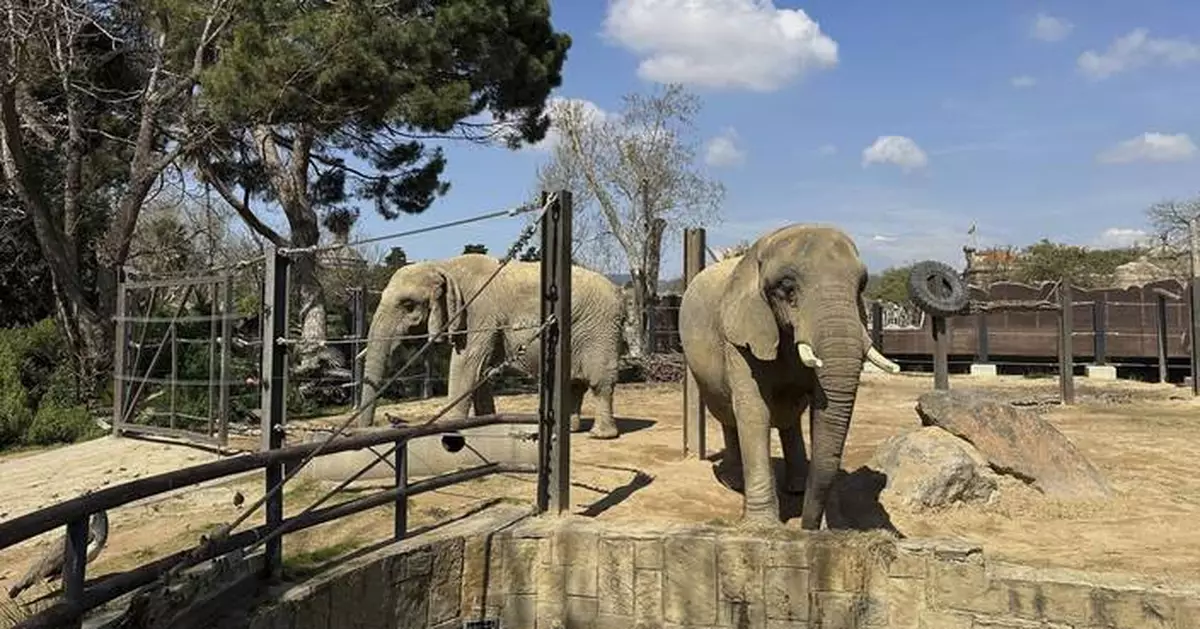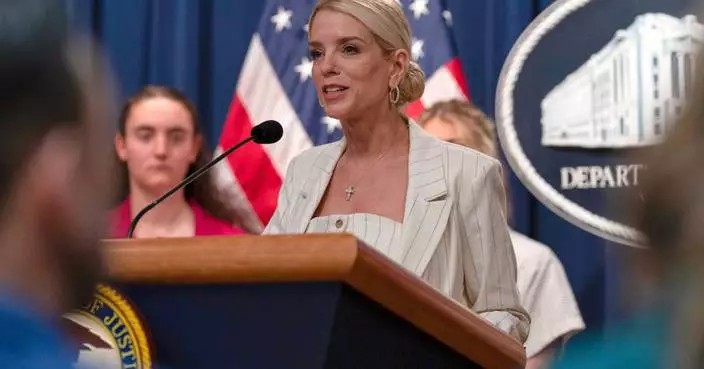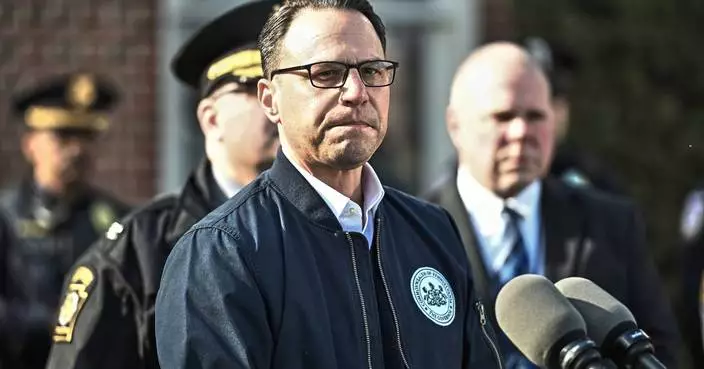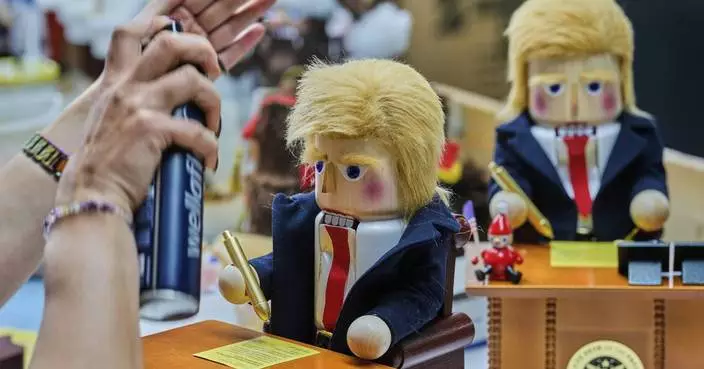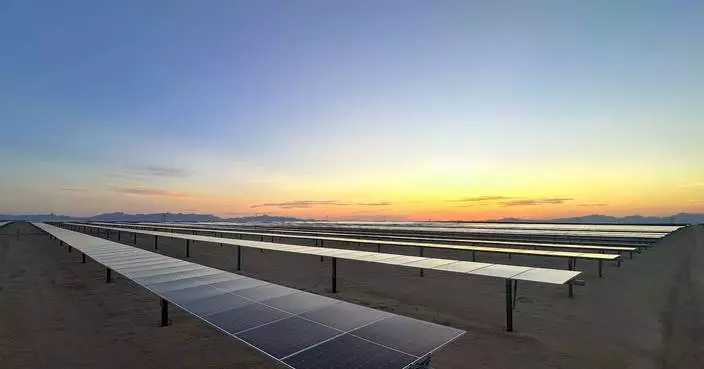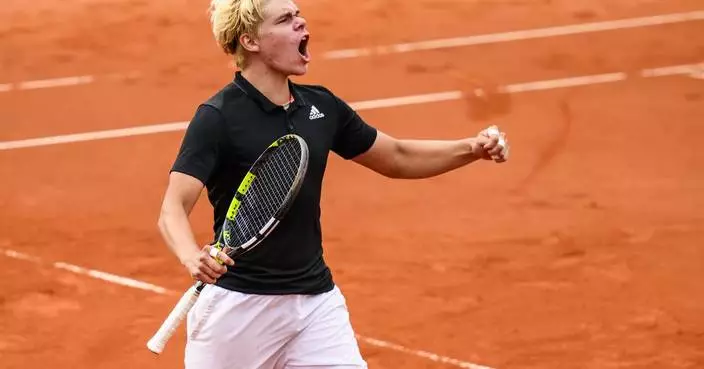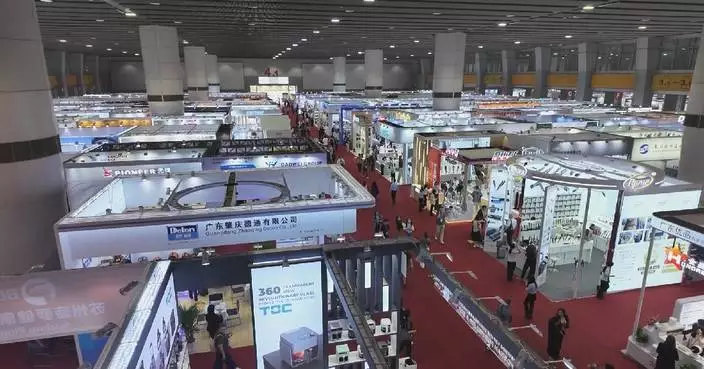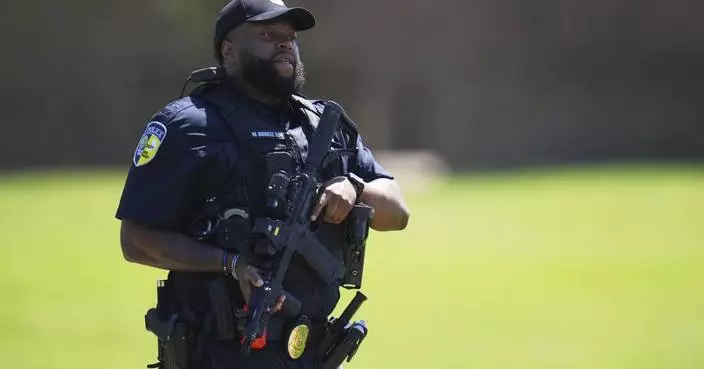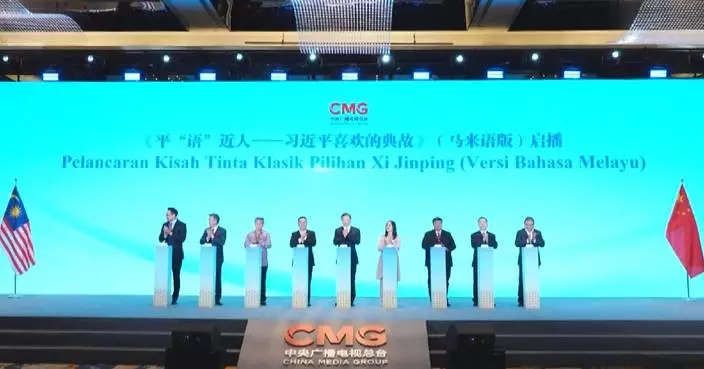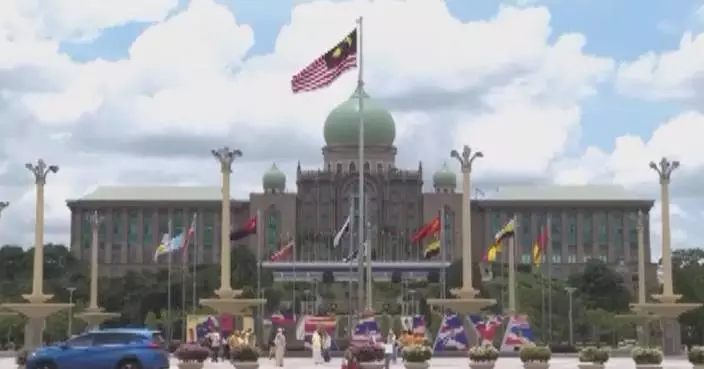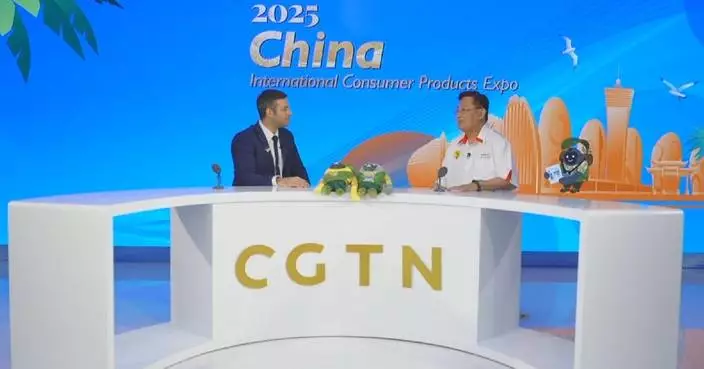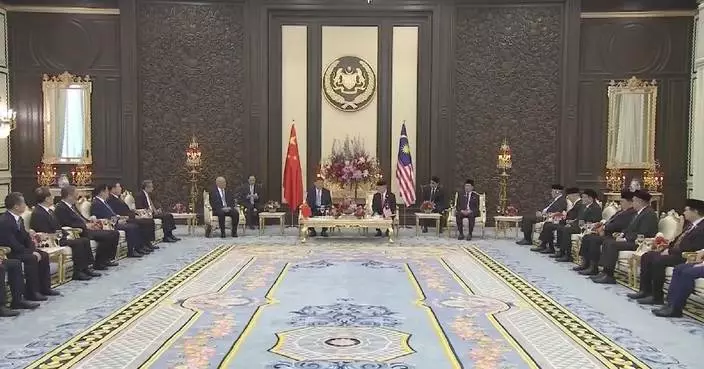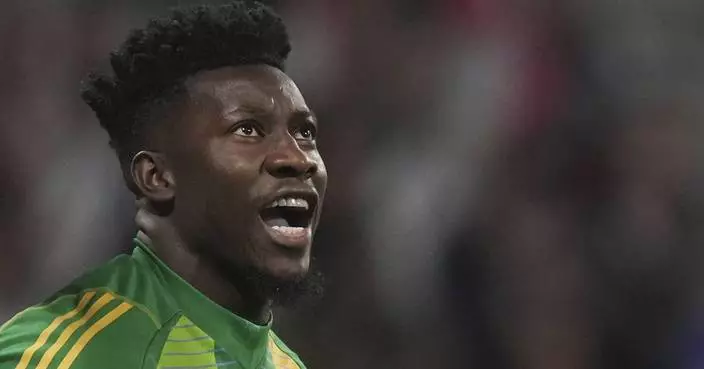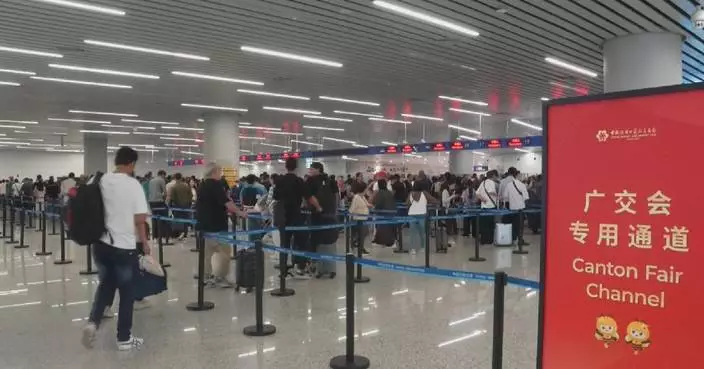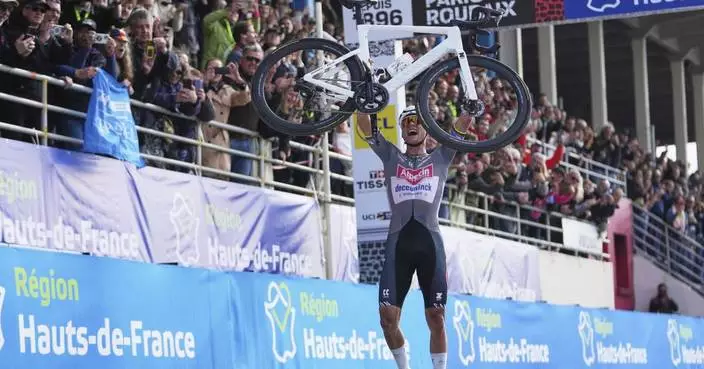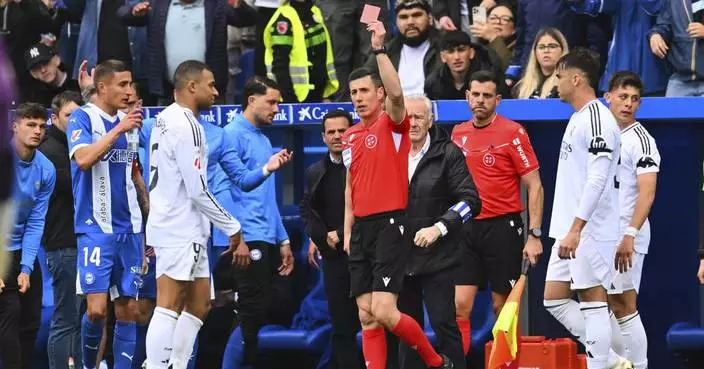BARCELONA, Spain (AP) — At the Barcelona Zoo, a 40-year-old African elephant places her foot through the metal barrier where a zookeeper gently scrubs its sole — the beloved pachyderm gets her “pedicure,” along with apple slices every day.
The treatment is part of the zoo’s specialized geriatric care for aging animals that cannot be reintroduced into the wild as zoos world over increasingly emphasize lifelong care.
“Sending them back into nature would be an error," said Pilar Padilla, head of the zoo's mammal care. "It is very likely they wouldn’t survive.”
Zoos have undergone a rethink in recent decades with the emphasis on the conservation of species and education, moving away from the past paradigm that often displayed exotic animals as a spectacle.
The new approach includes knowing how to adapt to the needs of aging animals, which has led zoos to create bigger, more nature-like enclosures, such as the Sahel-Savannah area at the zoo in the Spanish city of Barcelona.
Along with breeding programs to reintroduce fit animals into nature, zoos today want to ensure that animals living longer due to advancements in veterinary care can age gracefully, said Martín Zordan, the CEO of the World Association of Zoos and Aquariums, or WAZA.
“Specialized geriatric care is becoming increasingly essential," Zordan told The Associated Press at the organization’s Barcelona offices.
Zordan said that just like older people, elderly animals require more care: regular health checks, arthritis treatment, softer foods or nutritional supplements, adapted living spaces and monitoring of mental and behavioral health.
Along with caring for a pair of aging elephants, the Barcelona Zoo is also the home for a 15-year-old wolf, a leopard and a tiger who are both 17, as well as some older birds — including a flock of senior flamencos.
It's not alone — several zoos in the United States, for example, highlight their treatment of older animals, such as the zoos in Baltimore and Baton Rouge.
Zookeepers at the Barcelona Zoo, not far from the city’s Mediterranean coastline, are closely monitoring its two aging female pachyderms, Susi and Bully (pronounced BUH'-yi), as they cope with the recent death of Yoyo, their former pen-mate and long-time companion.
Yoyo died in December at age 54.
Susi, at 52, is now among the oldest known African elephants in captivity, even though WAZA said the age of animals born in the wild is approximate. Bully, who is 40, is also considered old for an African elephant. All three were captured in the wild and spent time in circuses an other zoos before coming to Barcelona.
The zoo is now working with the University of Barcelona to study the impact of Yoyo's death on Susi and Bully. It’s the first study of its kind, focused on elephants not from the same family after the death of a long-time companion, Padilla told The Associated Press during a recent visit to the zoo’s elephant enclosure.
At first, Susi and Bully showed their shock by not eating, but are now adapting well and turning to one another, including even sharing food, Padilla said, adding that Susi has taken on the dominant role that Yoyo had.
For elephants, their teeth are the real age test.
“What marks the decline of the animal is the wear on their teeth,” Barcelona zookeeper José María Santamaría said after finishing the Bully’s pedicure. “They go through six sets of molars during their life, and when they reach around 40 years old they lose the last set.”
Susi and Bully require daily checkups, food suited for their now molar-less mouths and extra attention to their legs — hence the daily pedicures and the enclosure's soft sandy floor to cushion aching feet.
“Those are the sort of considerations taken because we care about these animals living comfortably and leading lives with dignity,” Zordan said.
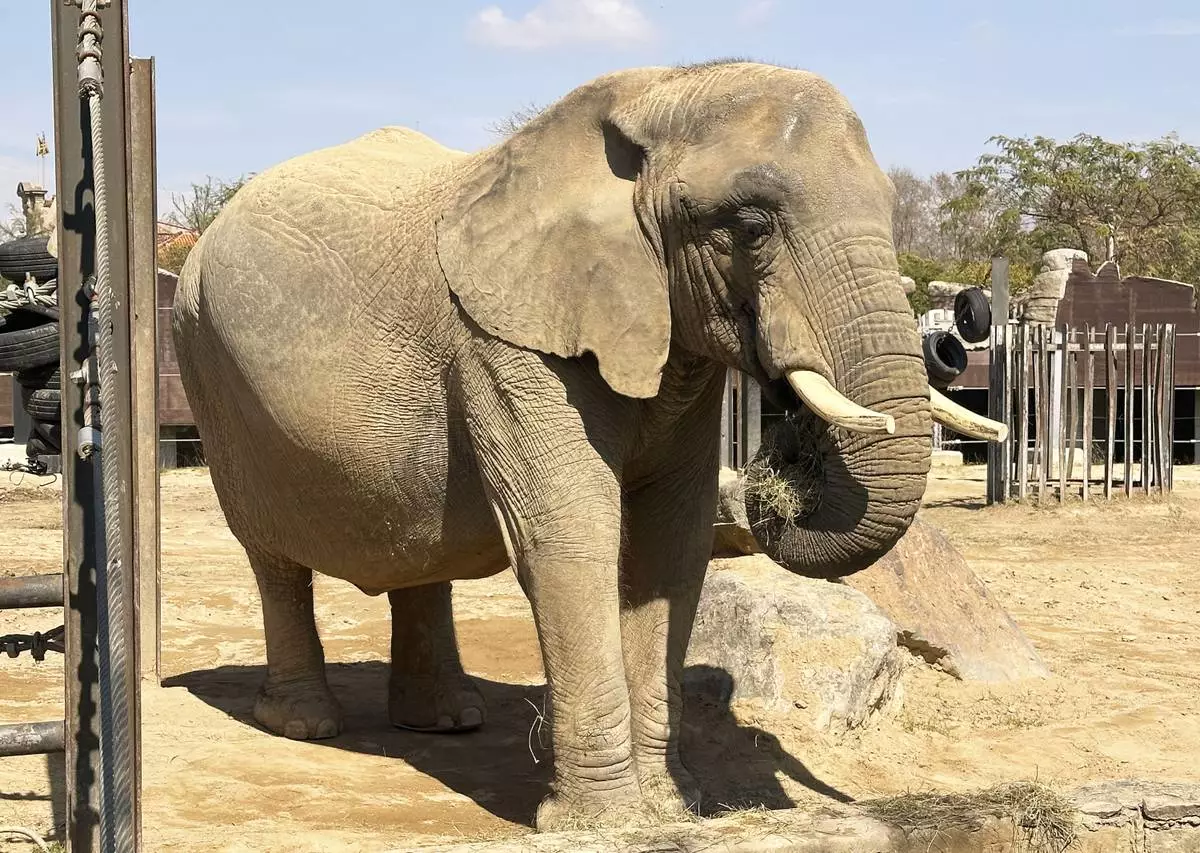
An old African elephant named Bully stands inside the Barcelona Zoo in, Spain, Thursday, March 27, 2025. (AP Photo/Hernan Muñoz)
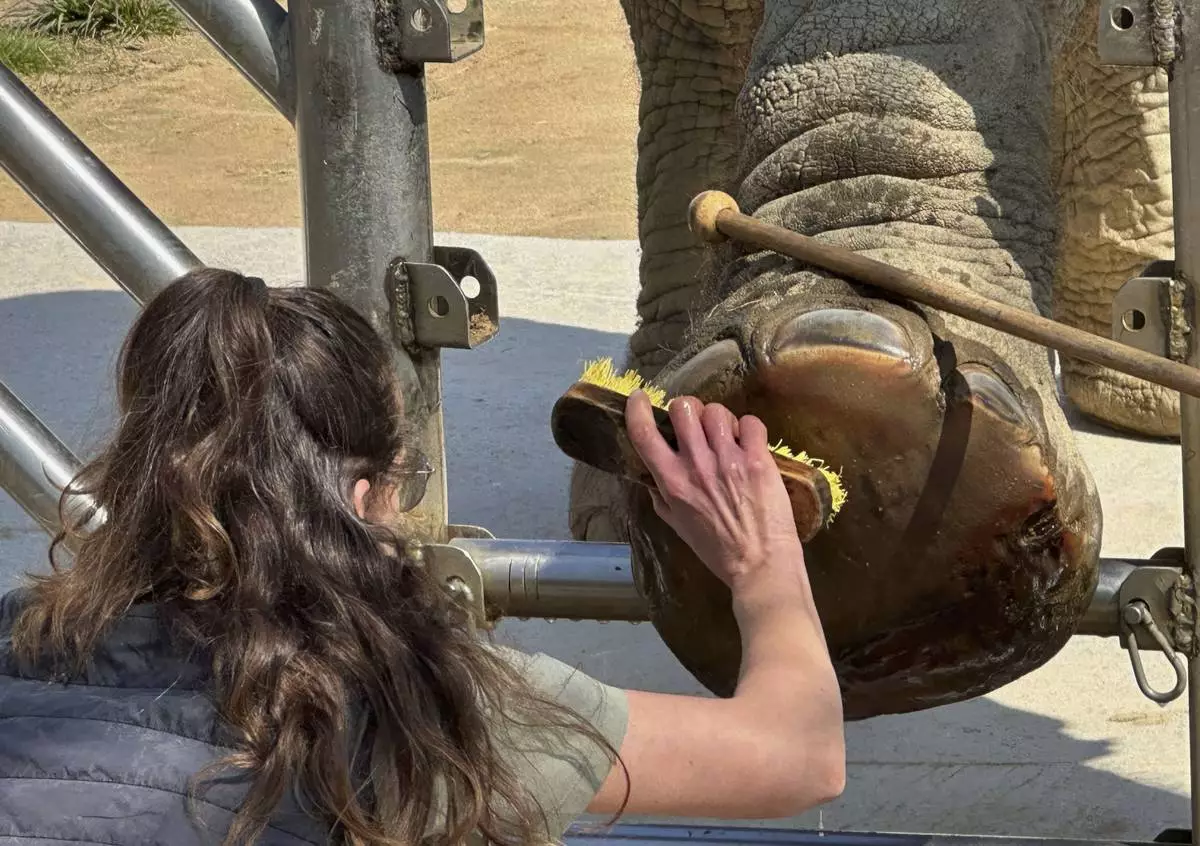
An old African elephant named Bully gets the sole of its foot scrubbed from a keeper inside the Barcelona Zoo in Spain, Thursday, March 27, 2025. (AP Photo/Hernan Muñoz)
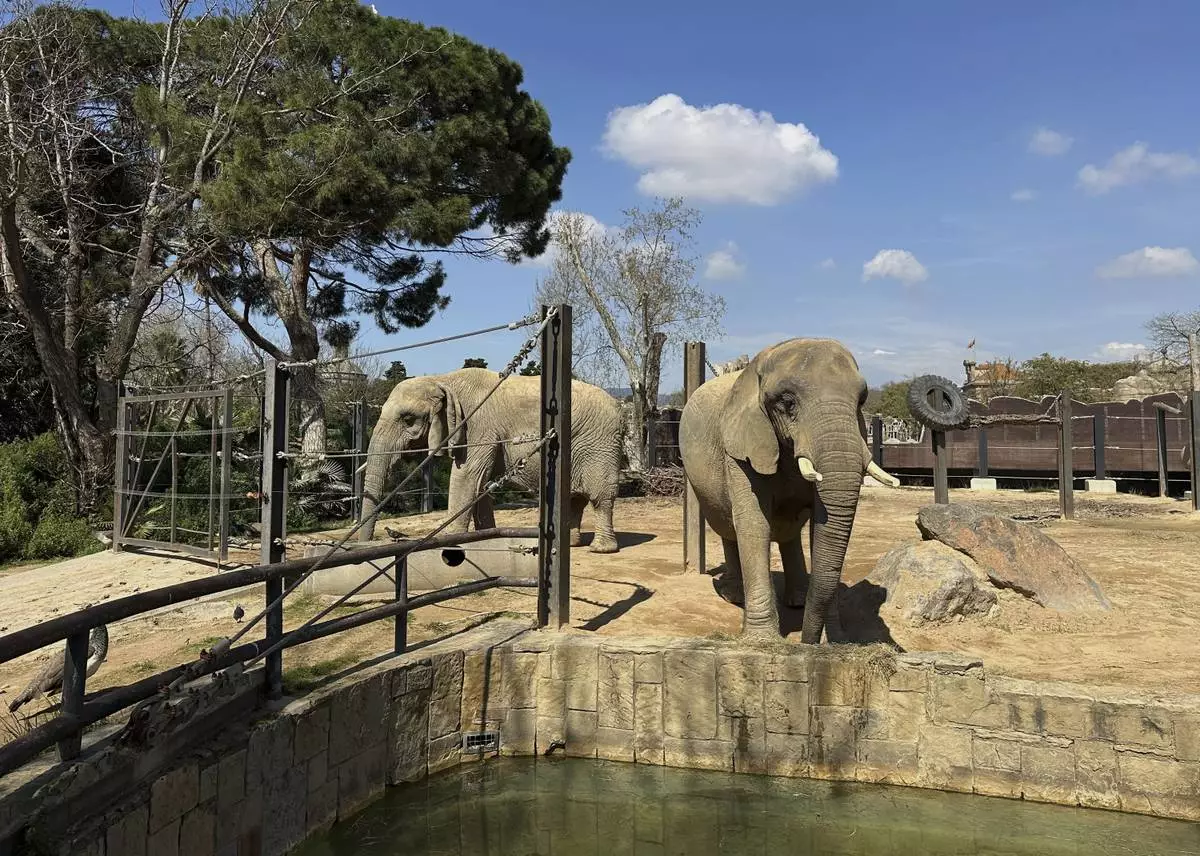
Two old African elephants Bully, left, and Susi, stand inside the Barcelona Zoo in Spain, Thursday, March 27, 2025. (AP Photo/Hernan Muñoz)
WASHINGTON (AP) — President Donald Trump on Wednesday inserted himself directly into trade talks with Japanese officials, a sign of the high stakes for the United States after its tariffs rattled the economy and caused the administration to assure the public that it would quickly reach deals.
The Republican president said in a post on his social media platform that he’ll attend the meeting alongside Treasury Secretary Scott Bessent and Commerce Secretary Howard Lutnick, top economic advisers with a central role in his trade and tariff policies.
“Hopefully something can be worked out which is good (GREAT!) for Japan and the USA!” Trump wrote in the social media post.
The president's choice to get directly involved in negotiations points to his desire to quickly finalize a slew of trade agreements as China is pursuing its own set of agreements. It's an open test of Trump's reputation as a dealmaker as countries around the world seek to limit the potential damage unleashed by his import taxes.
The sweeping tariffs that Trump announced on April 2 triggered panic in the financial markets and generated recession fears, causing the U.S. president to quickly put a partial 90-day hold on the import taxes and increase his already steep tariffs against China to as much as 145%.
The pause temporarily spared Japan from 24% across-the-board tariffs, but there continues to be a 10% baseline tariff and a 25% tax on imported cars, auto parts, steel and aluminum exports.
With Japan charging an average tax rate of 1.9% on other countries' goods and having a longstanding alliance with the U.S., the talks on Wednesday are a crucial indicator of whether the Trump administration can achieve a meaningful deal that reassures the markets, American voters and foreign allies.
U.S. economic rival China, meanwhile, is trying to capitalize on the turmoil around Trump's announcements, with its leader, President Xi Jinping, touring nations of Southeast Asia and promoting his country as a more reliable trade partner.
Japan is among the first countries to start open negotiations with the U.S. Trump and other administration officials have said the phones have been “ringing off the hook” with dozens of countries calling, eager to strike deals with a president who views himself as a master negotiator to avoid tariffs when the 90-day pause ends. Israel and Vietnam have offered to zero out their tariff rates, but Trump has been noncommittal as to whether that would be sufficient.
Japan, like many other nations trying to minimize the possible economic fallout from Trump's tariffs, has been scrambling to respond. It has set up a special task force to assess the impact of the tariffs and offer loans to anxious companies.
Although Prime Minister Shigeru Ishiba has been working hard to coax exemptions out of Trump, the government has said little officially on what concessions it might offer during these talks.
Nor has the administration been transparent about its asks. The Trump administration is seeking to close the $68.5 billion trade deficit with Japan and seeking greater access for U.S. goods in foreign markets, yet the president has also insisted that tariff revenues can be used to pay down the federal budget deficit.
“Japan is coming in today to negotiate Tariffs, the cost of military support, and ‘TRADE FAIRNESS,’” Trump posted on Wednesday.
U.S. officials will be meeting in Washington with Japan’s chief trade negotiator, Economic Revitalization Minister Ryosei Akazawa.
“I am prepared for the talks,” Akazawa told reporters at Tokyo’s Haneda Airport before boarding his flight. “I will negotiate in order to firmly protect our national interest.”
He said that both Bessent and U.S. Trade Representative Jamieson Greer are “known to be pro-Japan and professionally talented” and that he hopes to build a relationship of trust with them.
“I believe we can have good talks toward a win-win relationship that will serve national interest for both Japan and the United States,” he said.
Japan has contended that Trump's tariff measures are likely to violate bilateral trade agreements or World Trade Organization rules. While Ishiba has said he opposes retaliatory tariffs, he also has said he is in no rush to push for a settlement because he doesn't want concessions.
Xi, meanwhile, stopped in Malaysia on Wednesday and told its leader that China will be a collaborative partner and stand with its Southeast Asian neighbors after the global economic shocks.
Xi is touring Vietnam, Malaysia and Cambodia this week on a trip that likely was planned before the tariffs' uncertainty but that he's also using to promote Beijing as a source of stability in the region and shore up relationships in that part of the world as he looks for ways to mitigate the 145% tariffs that Trump is keeping on China.
“In the face of shocks to global order and economic globalization, China and Malaysia will stand with countries in the region to combat the undercurrents of geopolitical ... confrontation, as well as the counter-currents of unilateralism and protectionism,” Xi said in remarks at a dinner with Malaysian Prime Minister Anwar Ibrahim.
“Together, we will safeguard the bright prospects of our Asian family,” he added.
Xi has promised Malaysia and Vietnam greater access to Chinese markets on his visits, although few details were shared.
In Washington, Trump has indicated that he also wants to discuss how much the Japanese contribute to the cost of U.S. troops stationed there, largely as a deterrent to China.
Trump’s demand for more defense spending concerns the Japanese.
Under its national security strategy, Japan aims to double annual defense spending to nearly $10 trillion, or 2% of GDP, in 2027, while there is a concern that Trump may ask for that to be increased to 3% of GDP. Japanese Defense Minister Gen Nakatani said Tuesday that the military budget for this year is about 1.8% of Japan’s GDP.
Yamaguchi reported from Tokyo.
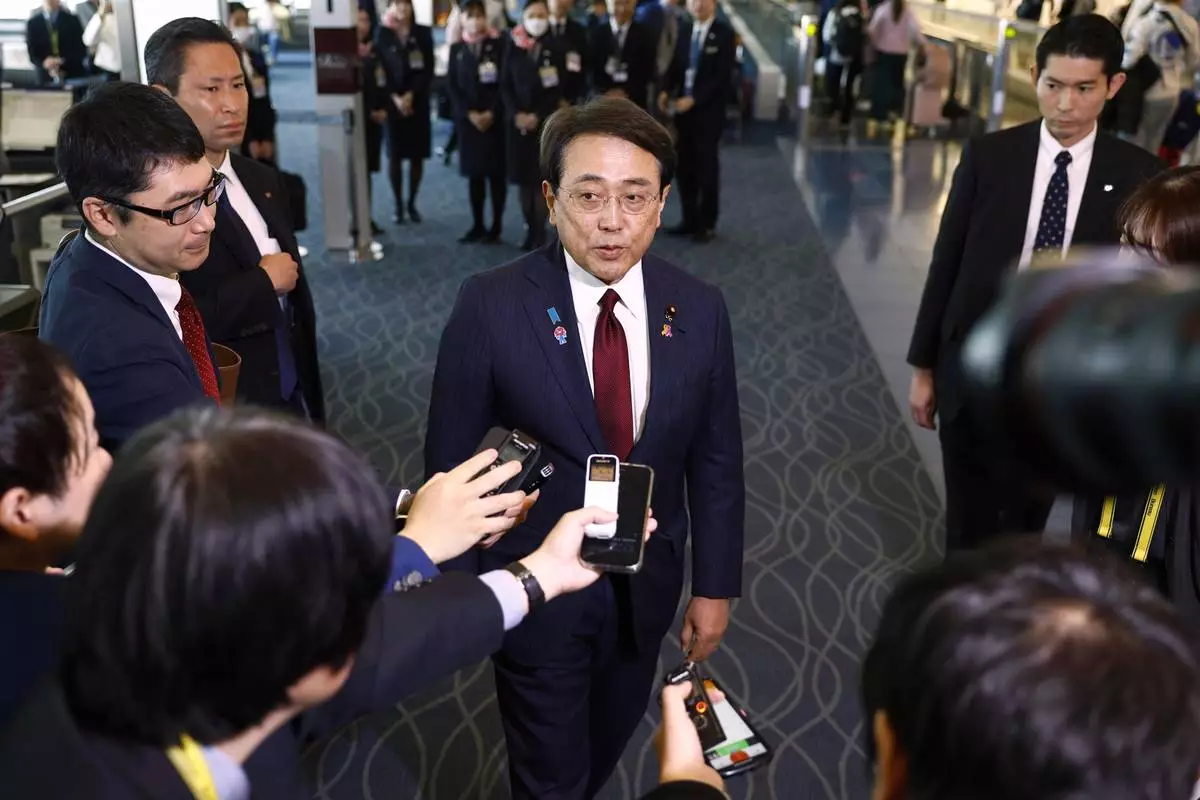
Japan's chief trade negotiator and Economic Revitalization Minister Ryosei Akazawa, center, speaks to the reporters before this departure for the U.S., at Haneda airport in Tokyo, Wednesday, April 16, 2025. (Kyodo News via AP)
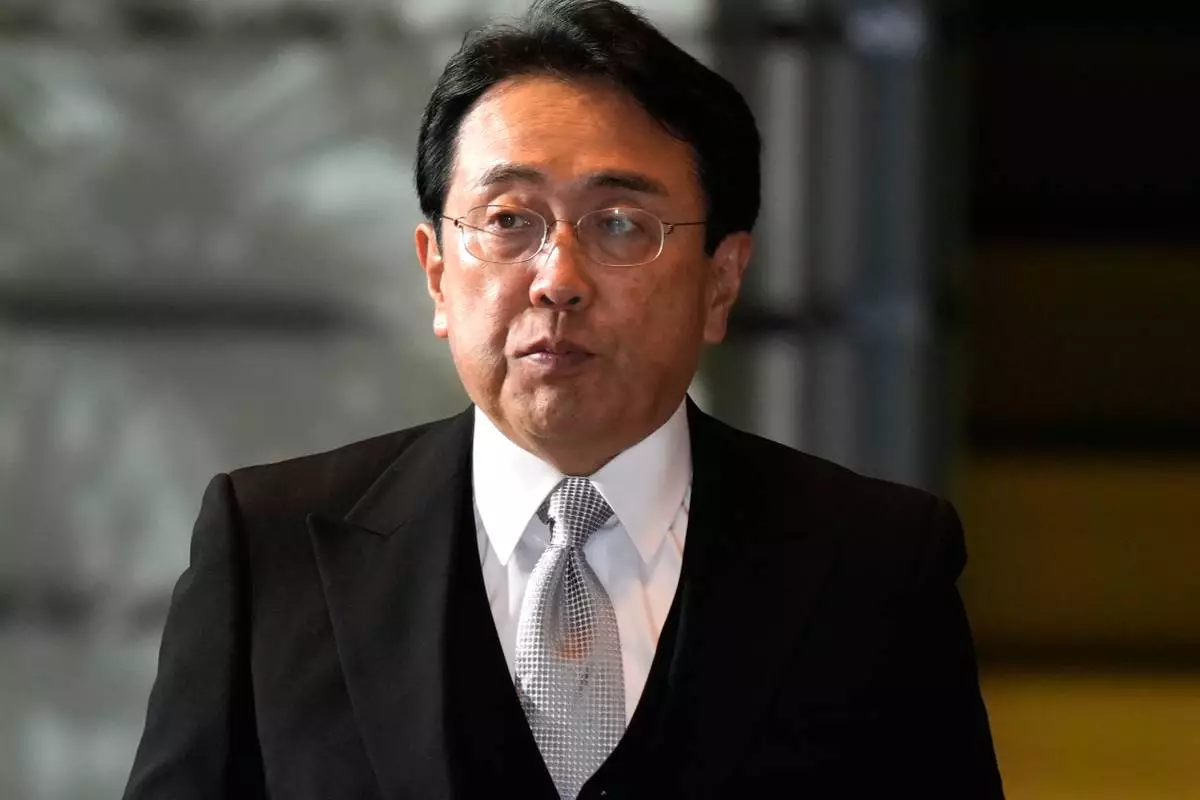
FILE - Ryosei Akazawa, newly appointed Minister in charge of Economic Revitalization, arrives at the prime minister's office Tuesday, Oct. 1, 2024, in Tokyo. (AP Photo/Hiro Komae)
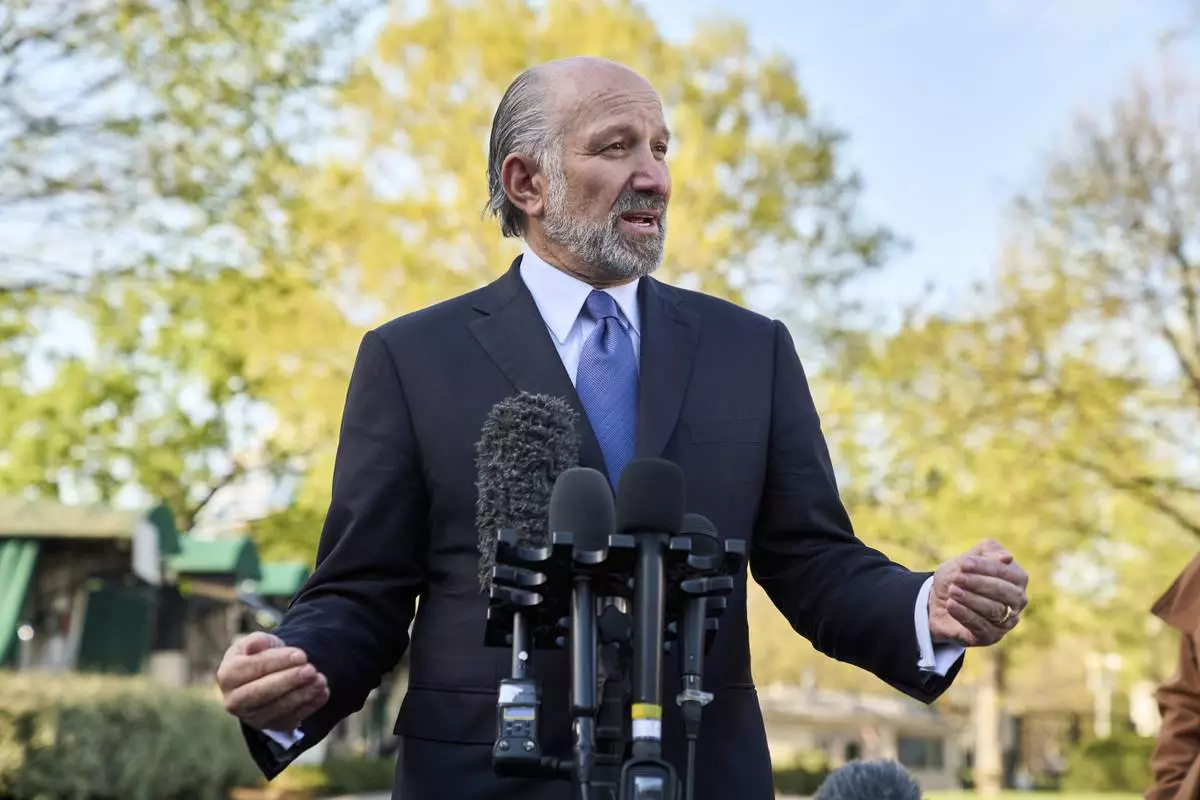
Commerce Secretary Howard Lutnick speaks to reporters outside the West Wing of the White House, Wednesday, April 9, 2025, in Washington. (AP Photo/Jacquelyn Martin)
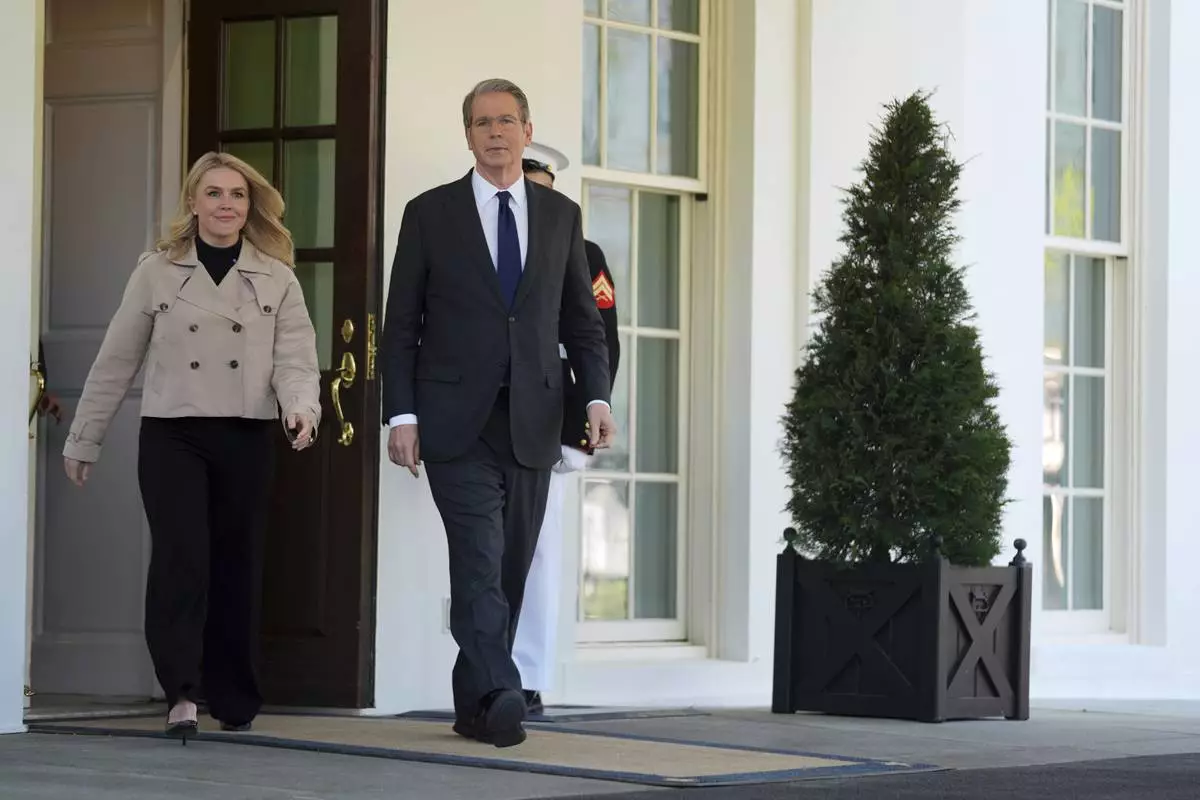
Treasury Secretary Scott Bessent and White House press secretary Karoline Leavitt walk to speak with reporters outside the West Wing of the White House, Wednesday, April 9, 2025, in Washington. (AP Photo/Evan Vucci)
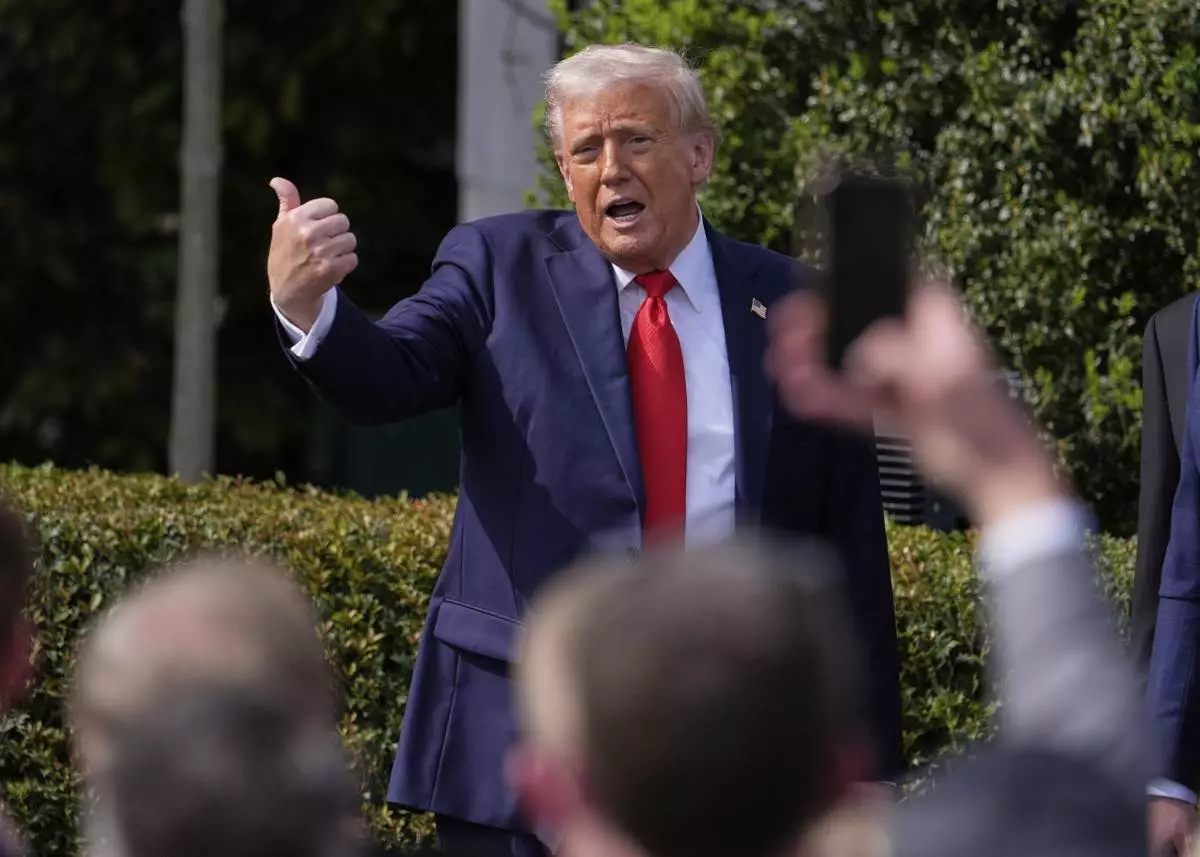
President Donald Trump gestures to the crowd as he departs after welcoming the 2025 College Football National Champions, the Ohio State University football team, during an event on the South Lawn of the White House, Monday, April 14, 2025, in Washington. (AP Photo/Manuel Balce Ceneta)
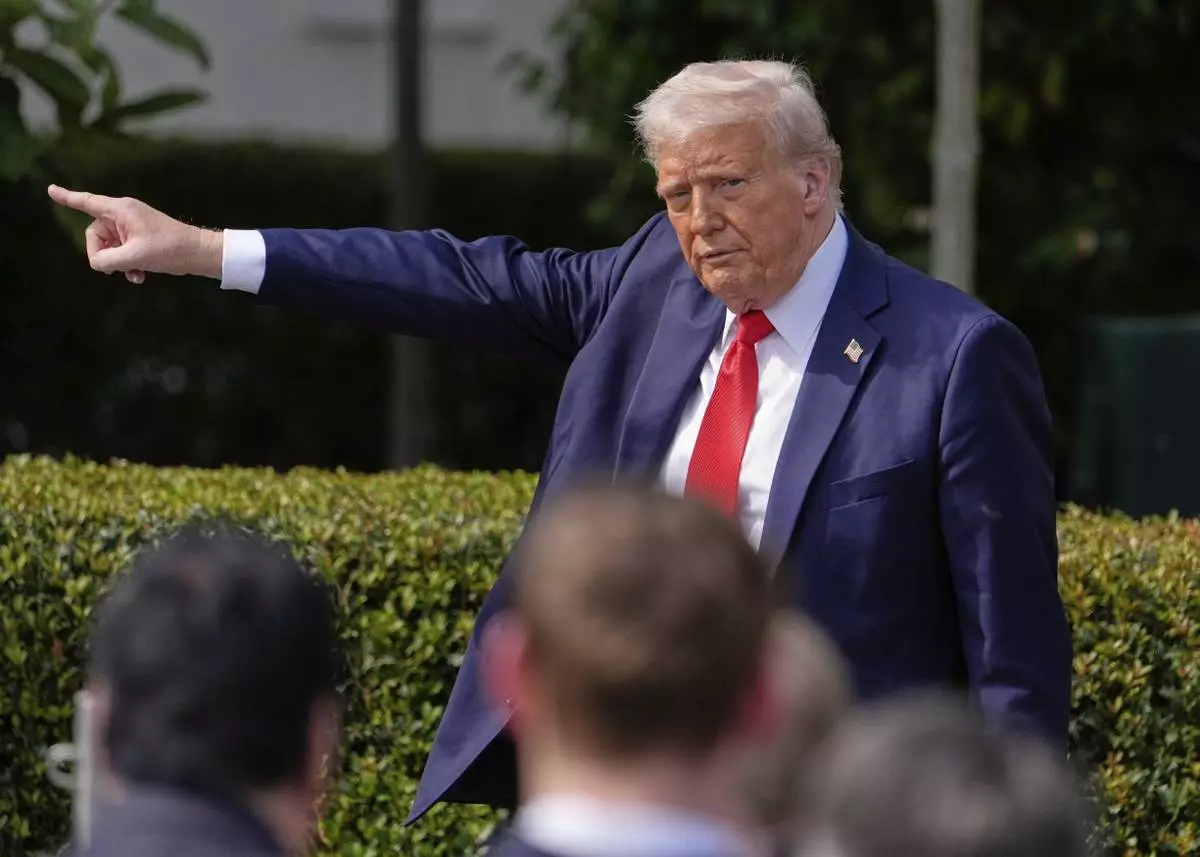
President Donald Trump gestures to the crowd as he departs after welcoming the 2025 College Football National Champions, the Ohio State University football team, during an event on the South Lawn of the White House, Monday, April 14, 2025, in Washington. (AP Photo/Manuel Balce Ceneta)





